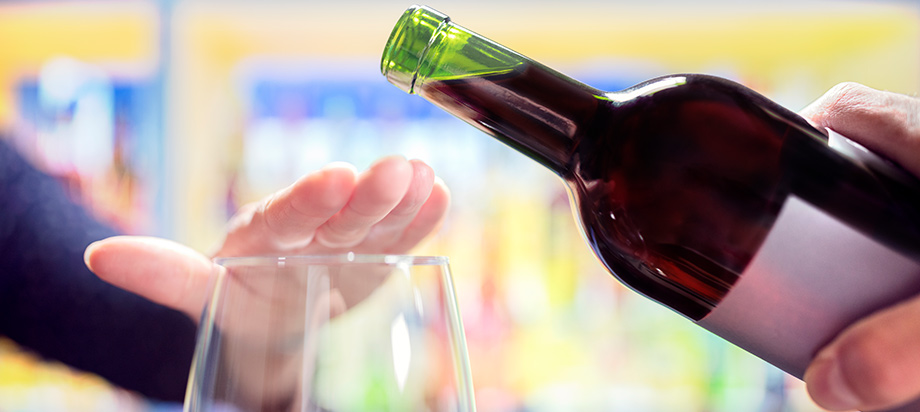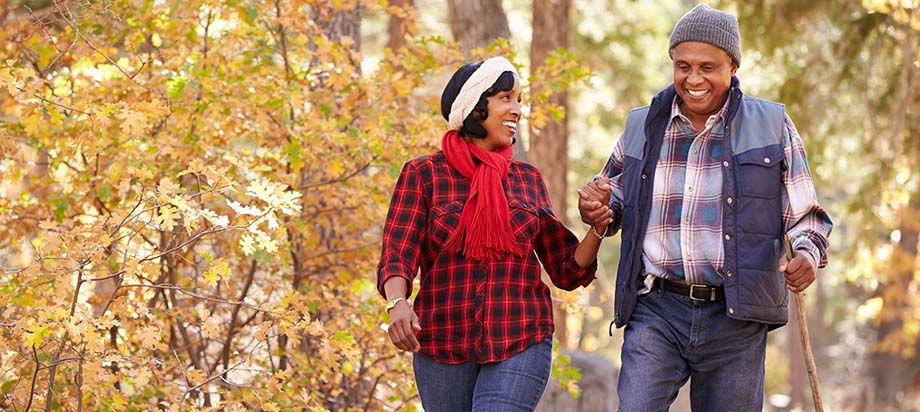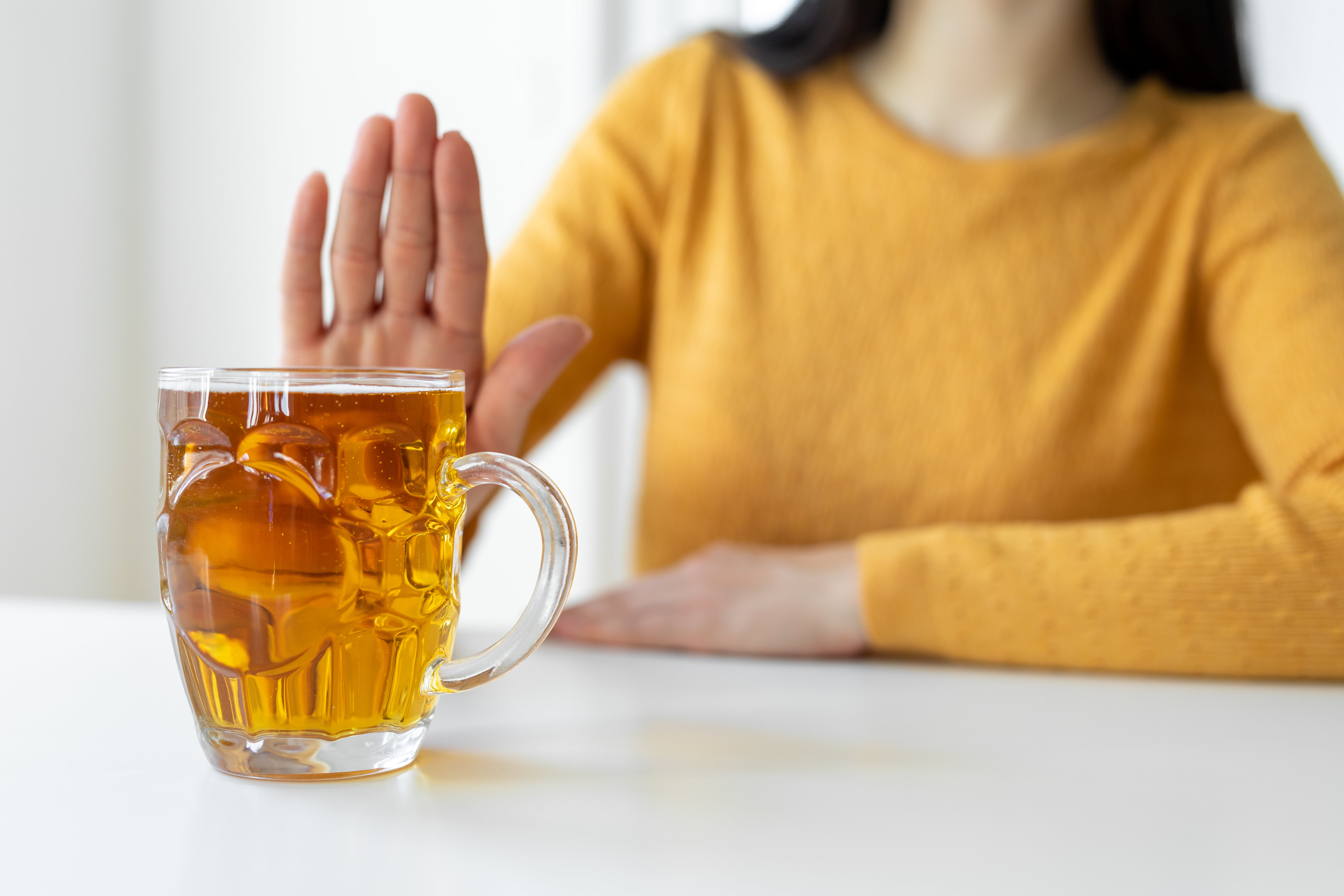
Typically, people choose to participate in Dry January—a month without booze—after a holiday season of overconsumption. But this New Year, Dry January comes after not just a couple of months of above-average drinking, but nearly a full year.
Stress, uncertainty, loneliness, disruption of everyday routines, job loss, grief, and lack of social support are all associated with excessive alcohol use. And most people have experienced at least one—if not all—of those factors over the past year.
Initial data seems to confirm that drinking has risen during the pandemic. Nielsen reports that from February 29 to April 18, brick-and-mortar alcohol sales were up 21% over the same period last year. And alcohol became one of the fastest-growing e-commerce segments, with sales up 234%. A study released in September found that, between May and June of 2020, “On average, alcohol was consumed 1 day more per month by 3 of 4 adults.”
2020 was a rough year for many; a lot of us are stuck at home—and are drinking too much.
The timing could not be better to launch a wellness challenge to help your employees cut back on alcohol.
What Is the Dry January Challenge?
The rules of Dry January are simple: no alcohol of any kind for a month. (Although, as NBC reported last year, some participants choose to “step back” from drinking for the month while partaking from time to time.)
The rules of Dry January are simple: no alcohol of any kind for a month.
Around this time last year, we wrote about the growing popularity of Dry January. The event has its roots in a nationwide health campaign that began in the United Kingdom but has since spread around the globe.
Younger generations, including millennials, are especially eager participants in Dry January. These generations see not only health advantages to forgoing alcohol but a financial boost.
Health Benefits of Dry January
After a long year of increased alcohol intake, it may not seem like a month off will make much of a difference. But surprisingly, even a few days without booze can have health benefits.
By the end of Dry January, participants may discover:
- They’ve lost weight. Most alcoholic beverages are high in empty calories, and we also tend to eat more when alcohol lowers our inhibitions.
- They’re sleeping better. Too much alcohol can prevent us from reaching the deep sleep we need to recharge overnight.
- Their blood pressure is lower. Drinking alcohol temporarily causes blood pressure to spike. Regular binge drinking can make it permanent.
- Their skin is clearer. Alcohol can aggravate skin conditions, such as eczema. It also dries out the skin, giving it a red, blotchy appearance.
- Their mood has improved. We often turn to alcohol to cope with stress and unhappiness, but alcohol actually worsens mental health issues such as anxiety and depression.
Refraining from alcohol may also aid in the development of new brain cells. Studies have shown that new cell growth can occur after only four or five weeks without drinking.
The long-term physical and mental health benefits of alcohol abstinence are even more significant.
Writer Alison Roth describes how Dry January led her into a year of sobriety. After the first few days, she writes, she hadn’t noticed any changes. But she hung on, and “everything improved, from my quality of sleep to the fit of my jeans.”
Like most people, Roth had a challenging 2020. But thanks to her newfound mental clarity, she writes, “it wasn’t a year I survived; it was a year I lived. For that, I will be forever thankful.”
How to Help Your Employees Get Through Dry January
In some ways, Dry January is easier than ever. Younger generations feel less social pressure to drink, and alcohol brands and craft bars have noticed. Specialty concoctions have popped up to provide the fun and satisfaction of an after-work cocktail minus the buzz (and the hangover).
On the other hand, lacking the face-to-face social support of coworkers, friends, and family, many people may find it harder to resist the urge to cheat their way through Dry January this winter. This is where a Dry January workplace wellness challenge can help.
A Dry January challenge will provide a formal structure to something many of your employees will be planning to do independently. The challenge will give your employees the opportunity to encourage each other and swap tips and recipes for replacing alcohol.
You may also choose to offer video-based life coaching to help your employees stay on track and find healthy choices to cope with pandemic-related stress.
A Dry January wellness challenge will help normalize non-drinking among your employees. Alcohol isn’t as significant an element in corporate culture as it used to be (remember three-martini lunches?). However, it’s still a part of post-work happy hours and celebratory gatherings.
Sponsoring a Dry January challenge will signal to your employees that your company supports their efforts to remain sober and healthy and that your company will never pressure employees to imbibe.
If all goes well, most people will be vaccinated against COVID-19 by the end of 2021–sooner, we hope. Bars and restaurants will eventually reopen at their full capacity, and parties and other social gatherings will return. All the more reason to avoid alcohol at the start of this year, when we aren’t doing much going out, anyway!
With a well-planned Dry January challenge, you can help your employees persevere and even enjoy a month without drinking.




